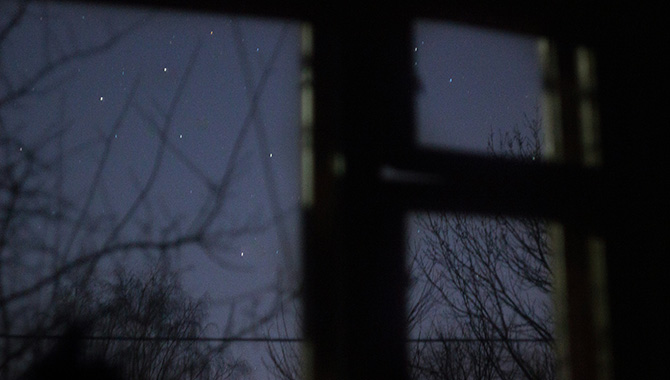Jacob was left alone; and a man wrestled with him until daybreak. ~ Genesis 32:24
I cherish the nights that I “sleep in heavenly peace” because they are far and few in between. I usually fall asleep quickly, exhausted, and then I wake up in the middle of the dark night.
I toss and turn from side to side and tap my feet nervously like I am taking a test that I’m sure to fail. I wrap our blankets snuggly around me like a cocoon, and Jennifer pulls the blankets back around her. We silently play an endless game of tug-of war. “Go to sleep!” she says. I reply, “You go to sleep. You’re keeping me up.” But I know something else is bothering me in the dark night.
I count, say the Lord’s Prayer over and over, and toss our comforter off and on, but nothing leads to sleep. Should I get up and read or will sleep anoint me again? Sometimes I worry about one or both of our adult children, sometimes I worry about finances. I wonder if this life I am living is as good as it gets. I worry about the acrimonious divide in our country which filters down into our local lives.
I remember old spats and imagine new ones. Words said and words unspoken. Will there be healing and forgiveness? I stew in the dark night.
Lately though, I wake up in the middle of the night and there is nothing on my mind. Jennifer would say, “I could tell you that.” No deep worry or fear presses in on me. The effect is the same though, a restless, sleepless night. Not being able to identify a troublesome event or circumstance is even more frustrating. Where should I direct my kinetic energy?
What is it that wakes us up in the middle of the night?
“I got tired, so I slept. I slept and woke up again—and struggled again. But finally, I took the journey,” wrote Catherine Doherty in her spiritual classic, Poustinia: Encountering God in Silence, Solitude, and Prayer. While on spiritual retreats, she experienced sleepless nights and battled and battled to no avail. Doherty said, “I really battled and struggled with God. I struggled because for some unaccountable reason I did not want to go. It seemed a little bit frightening.”
I firmly believe God is love, and Christ walks with us “through the darkest valleys” and “restores our souls” (see Psalm 23).” So why would Doherty struggle with God? Do we struggle with God? Are our late-night bouts wrestling matches with the God of grace and compassion?
Jacob sends his family ahead of him and he spends the ultimate restless night alone in the wilderness. He wrestles all night long with a stranger that turns out to be God who blesses Jacob the next morning. God gives Jacob a Hebrew name, Israel, which likely means “he struggles with God” (Genesis 32:28) as stated in GotQuestions.org.
Why would we, Jacob, or Doherty wrestle or struggle with God?
“There is a deeper voice of God, which we must learn to hear and obey. It will sound like the voice of risk, of trust, of surrender, of soul, of common sense, of destiny, of love, of an intimate stranger, of our deepest self. It will always feel gratuitous, and it is this very freedom that scares us,” writes Father Richard Rohr.
How quickly do we acquiesce to the voices of shame, guilt, and unworthiness? How familiar are the voices of judgment and condemnation of our very being? Are we worthy, lovable? Loud voices condemn us.
“God never leads by guilt or shame!” says Rohr. “God leads by loving the soul at ever-deeper levels, not by shaming at superficial levels.” In the dark night and through the gift of contemplative prayer Doherty undertook the inward journey to Grace. She writes, “To me it means to come into the light from a very great darkness. It means to come into peace from a great turmoil. It means to come into joy from a painful and joyless journey. When I came to God, I fell asleep again.”
When I think about all the sleepless nights I’ve spent wrestling with sheets, worries, barking dogs, regrets, and sadness for words spoken out of anger, maybe I was really wrestling with God’s grace, love, and forgiveness. Loud voices try to punish us with guilt and shame, and the quiet, deeper voice of God says, “You are my beloved son/daughter. You are forgiven. I love you. Go and love who I love. Forgive who I forgive.” Do we trust God’s words to us or do we wrestle with them?
May we hear and receive the love and grace of God in our restless dark nights, and may we share that Grace with one another for the transformation of the world. May we sleep in heavenly peace.
Blessings and peace,
Craig

